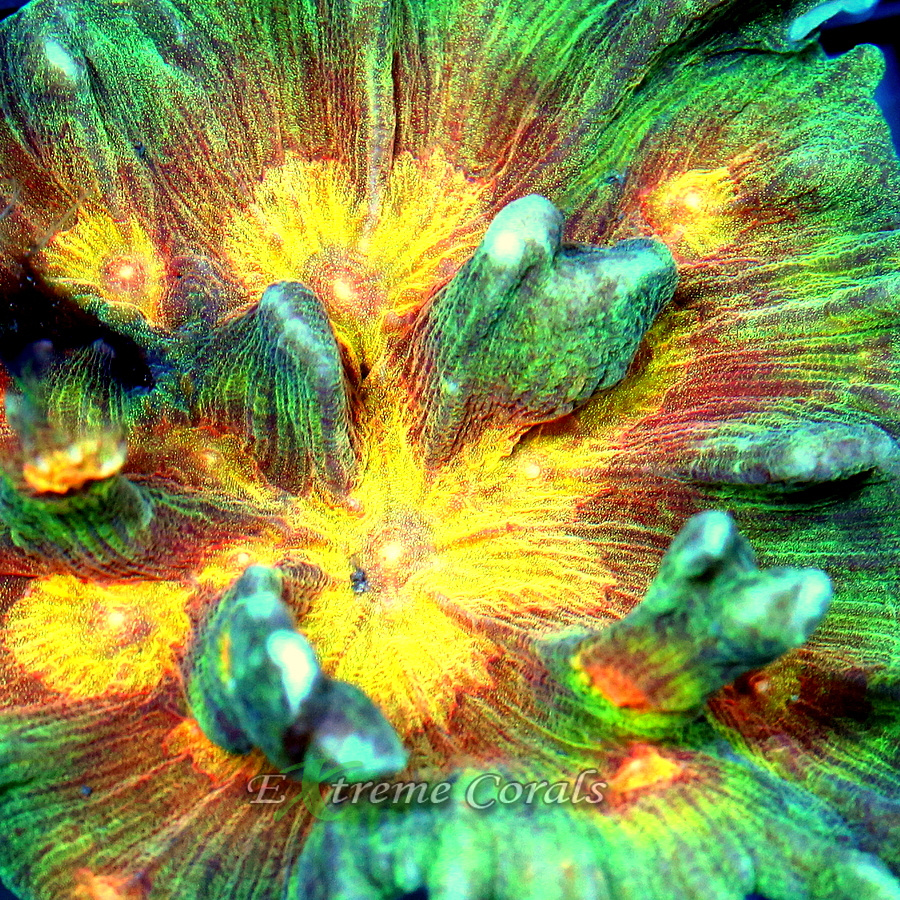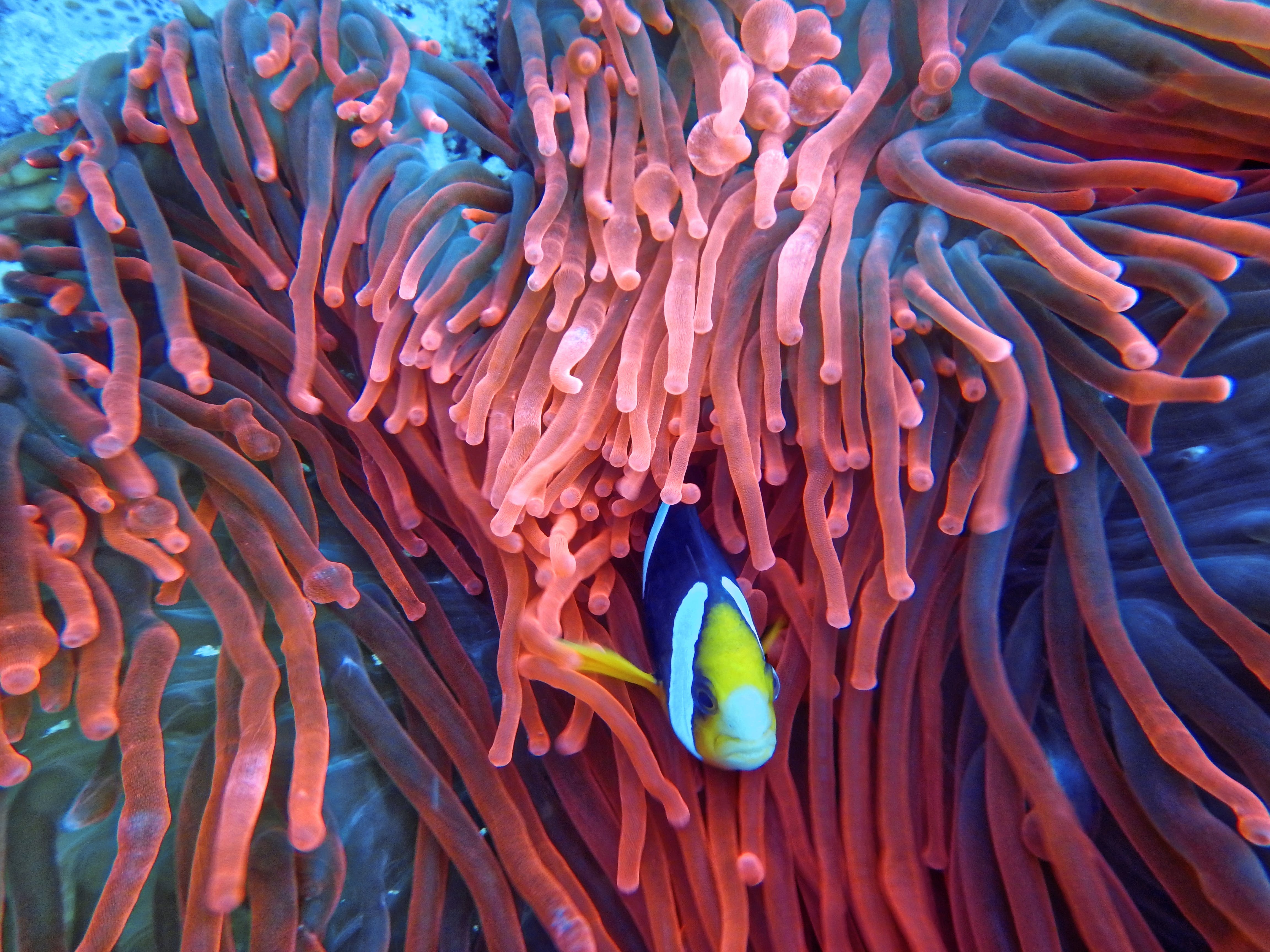Extreme Corals News and Updates
Common myths about coral care, reefkeeping hobby, and live corals
Busting Myths: Essential Truths for Successful Coral Care in Your Reef Tank
Explore and debunk common myths surrounding coral care and reefkeeping practices. From misconceptions about coral maintenance to choosing the right corals for your tank, discover essential tips and practices for fostering a thriving reef environment. Learn how to promote responsible coral care practices and contribute to the preservation of these delicate ecosystems
by scott Shiles • February 12, 2024
When it comes to caring for coral, there are several myths that can mislead reef hobbyists. Some misconceptions include the idea that corals do not need feeding or that once a coral "settles in" it no longer needs to be moved. It's important to debunk these myths to ensure the health and longevity of your reef.

Myth #1: Corals don't require much care
Many people believe that corals don't need much care, but that's a common misconception. In reality, corals require proper care and maintenance to thrive in a reef aquarium environment. Providing the right water parameters, lighting, and nutrient levels is essential for the health of coral. Additionally, regular monitoring and adjustments are necessary to ensure that the corals are flourishing in the aquarium.
Myth #2: Corals are low-maintenance pets
Many people believe that corals are low-maintenance pets, but that's a misconception. Keeping corals healthy requires dedication and effort. They need proper lighting, water quality, and regular maintenance to thrive. Some corals are more hardy than others, but they all require attention to ensure their well-being. It's essential to research and understand the specific needs of the corals you plan to care for to create a suitable environment for them.
Myth #3: All corals are suitable for beginners
Some corals are easier to care for than others, but not all corals are suitable for beginners. Soft corals like mushrooms, leathers, and pulsing xenia are usually better choices for beginners. They are more forgiving of changes in water quality and lighting. Hard corals, on the other hand, require more stable tank conditions and specific lighting and water flow. So, it’s important for beginners to research and choose corals that are better suited to their experience level.
Myth #4: Corals can thrive in any aquarium
Some people believe that corals can thrive in any aquarium, but that is not true. Different types of corals require specific conditions to survive and thrive. Some corals need intense lighting, specific water flow, and stable water parameters. Without these conditions, corals may struggle and eventually die in an unsuitable environment. It's important for reef hobbyists to research and understand the specific requirements of the corals they want to keep in their aquarium before introducing them.
Myth #5: Corals can survive on ambient light
You might have heard that corals can survive on ambient light alone. However, it is a common misconception. While some corals might survive in low light conditions, most corals require strong, direct light to thrive. Without sufficient light, corals may struggle to photosynthesize and could wither away. It is essential to provide the right amount of light to ensure the health and growth of your coral reef.
Debunking the myths
You may have heard various myths and misconceptions about caring for coral reefs, but it's important to separate fact from fiction. Let's debunk some common myths to ensure you're well-informed about reef care.
Essential care tips for reef hobbyists
Reef hobbyists should ensure stable water parameters in their tanks, including maintaining proper temperature, salinity, and pH levels. Regular water testing, frequent partial water changes, and the use of high-quality salt mix are essential for a healthy reef environment. Additionally, providing adequate lighting and proper water flow is crucial for the growth of corals. Consider using a protein skimmer and a reliable filtration system to remove waste and keep the water clean. Regular maintenance and observation are key to preventing common problems such as algae overgrowth and coral bleaching.
Choosing the right corals for your tank
When choosing corals for your tank, it's important to consider their specific needs and your tank's environment. Here are some key points to keep in mind:
- Different coral species have different requirements for light, water flow, and feeding.
- Research the specific needs of the corals you're interested in to ensure they are compatible with your tank setup.
- Consider starting with hardy, beginner-friendly corals such as zoanthids, mushrooms, and leathers to gain experience before moving on to more challenging species.
- Avoid overcrowding your tank with corals, as this can lead to competition for space and resources.
- Regular water testing and maintenance are essential to creating a healthy environment for your chosen corals.
Promoting responsible coral care
When it comes to maintaining a healthy reef, it's essential to promote responsible coral care practices. By choosing sustainable and ethical coral suppliers, avoiding wild collection, and prioritizing aquacultured or captive-bred corals, reef hobbyists can contribute to the preservation of these delicate ecosystems. Additionally, staying informed about proper coral care techniques, such as proper lighting and water parameters, and avoiding harmful additives can help ensure the long-term health of coral reefs. Ultimately, responsible coral care is not only beneficial for individual hobbyists but also plays a crucial role in the conservation of these beautiful and diverse marine environments.

